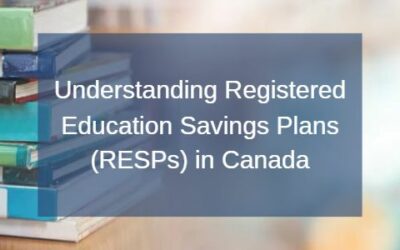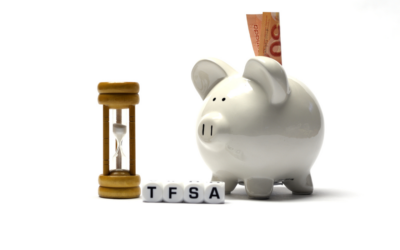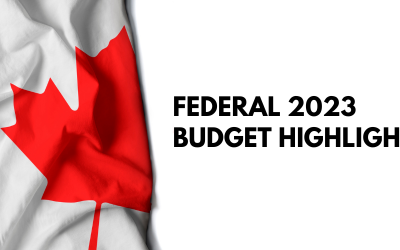DYNAMIC
PLANNING
INSIGHTS
Group Insurance vs Individual Life Insurance
While it’s great to have group coverage from your employer or association, in most cases, people don’t understand the that there are important differences when it comes to group life insurance vs. self owned life insurance.
Do you have enough for retirement?
Many of us dream of the day that we can retire and have the time to ourselves that we have dreamed of for so many years. But, to have a genuinely contented and relaxing retirement, you need to ensure that you have the means to afford it. So, now’s the best time to consider the three critical stages of retirement planning.
1) Accumulation
2) Pre-retirement
3) Retirement
Understanding Registered Education Savings Plans (RESPs) in Canada
Dive into the details of Registered Education Savings Plans (RESPs)! This guide covers how RESPs work, eligibility criteria, benefits, and government grants such as the Canada Education Savings Grant. Learn how to open an RESP and safeguard your child’s educational future.
Understanding Tax-Free Savings Accounts (TFSAs)
A Tax-Free Savings Account is a powerful tool to help you achieve your financial goals. Whether you’re saving for a new home, planning for retirement, or investing in your children’s education, a TFSA can be a valuable part of your financial strategy. The flexibility and tax advantages it offers make it a great choice for many Canadians.
Remember, the sooner you start, the more time your investments have to grow tax-free. Every dollar counts when you’re planning for the future, and a TFSA can help you make the most of your savings.
Don’t wait until tomorrow to start planning for your future. Contact us today to begin your journey to financial security today.
Demystifying MER’s (Management Expense Ratio)
Investing in a fund involves knowing its associated costs, and the Management Expense Ratio (MER) is a crucial factor to consider. The MER is a percentage of the total assets in the investment fund that covers the fund’s operating and management costs. It’s important to note that the MER is subtracted from your investment returns, so a higher MER will result in lower net returns for you. For example, if a fund’s expenses amounted to 2% of its assets, its MER would be 2%. It’s crucial to understand the MER of a fund to make informed investment decisions and ensure that you’re getting the most value for your money. In this article and infographic, we will break down the various components of the MER to help you better understand it.
Essential tips and tricks for paying less tax and keeping more of your retirement income
It’s important to make the most of your retirement income. To do so, you need to be aware of what income is and isn’t taxable, and also how to make the most of the tax breaks you’re entitled to. This article outlines the four main steps you need to take to ensure you keep as much of your retirement income as possible:
1. Make a financial plan.
2. Split your pension income.
3. Buy an annuity.
4. Be aware of retirement-related tax breaks.
First Home Savings Account (FHSA): What You Need to Know
Are you looking to buy your first home in Canada? The First Home Savings Account (FHSA) could help make it happen. This savings plan allows first-time home buyers to save up to $40,000 tax-free, with contributions being tax-deductible. In this article and infographic, we cover everything you need to know about FHSA, including eligibility requirements, contributions and deductions, qualifying investments, withdrawals, and transfers.
Tax Tips You Need To Know Before Filing Your 2022 Taxes
It’ll be time to file your 2022 taxes soon, and you must take advantage of every tax credit and deduction you can! Our article covers the following:
• Canada Workers Benefit.
• Claiming home office expenses.
• The tax deduction for zero-emissions vehicles.
• Return Of Fuel Charge Proceeds To Farmers Tax Credit.
• Eligible Educator School Supply Tax Credit.
Federal Budget 2023 Highlights
On March 28, 2023, the Federal Government released their 2032 budget. This article highlights the following financial measures:
• New transfer options associated with Bill C-208 for intergenerational transfer.
• New rules for employee ownership trusts.
• Changes to how the Alternative Minimum Tax is calculated.
• Improvements to Registered Education Savings Plans.
• Expanding access to Registered Disability Savings Plans.
• Grocery rebate.
• Deduction for tradespeople tool expenses.
• Automatic tax filing.
• New Canadian Dental Care Plan.
British Columbia 2023 Budget Highlights
On February 28, 2023, the B.C. Minister of Finance announced the 2023 budget. We have highlighted the most important financial measures you need to know:
• Tax credit changes.
• Increases to the B.C Family Benefit.
• Carbon tax changes.
• Other important tax changes.
• Healthcare and housing spending.










